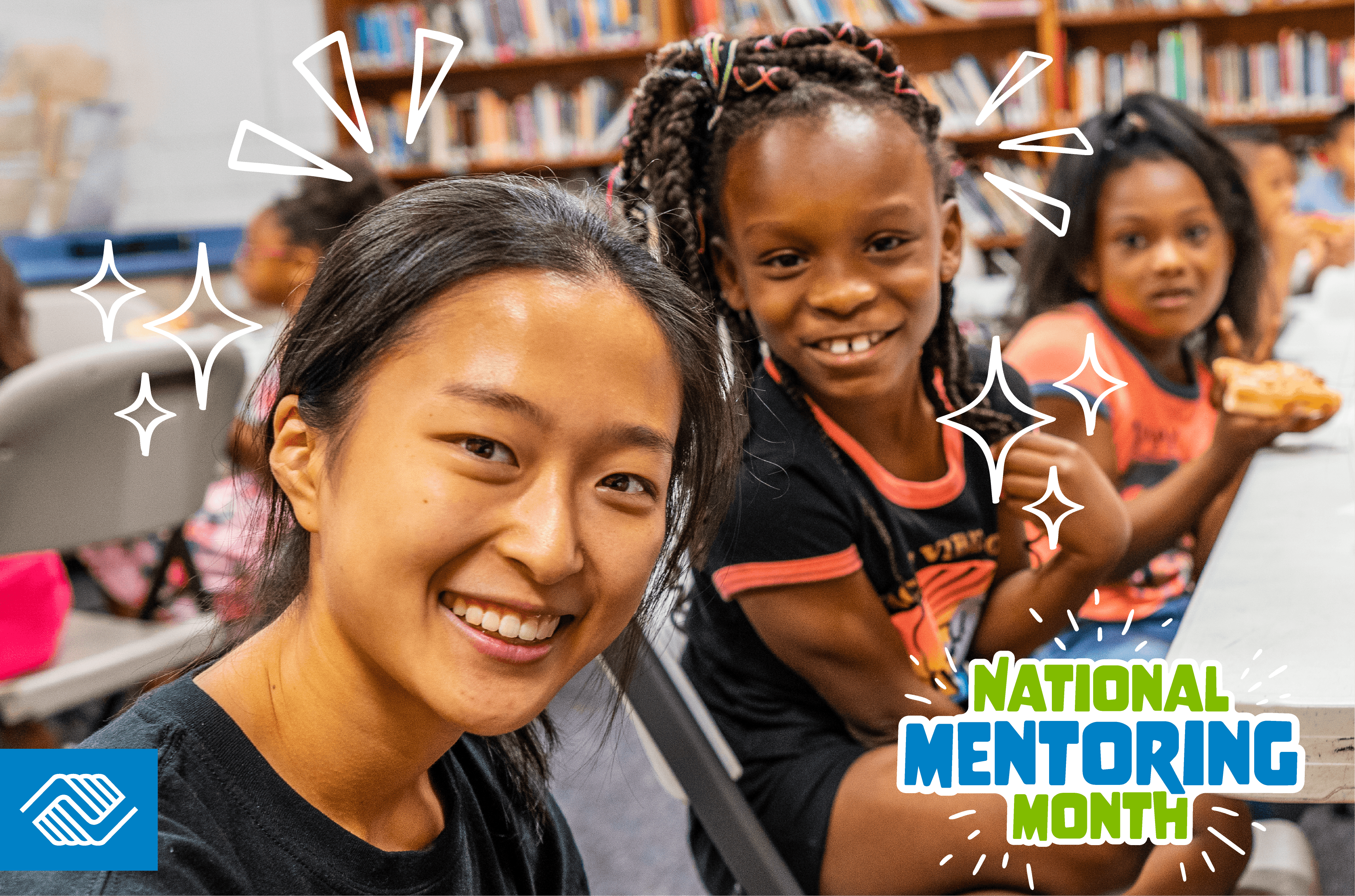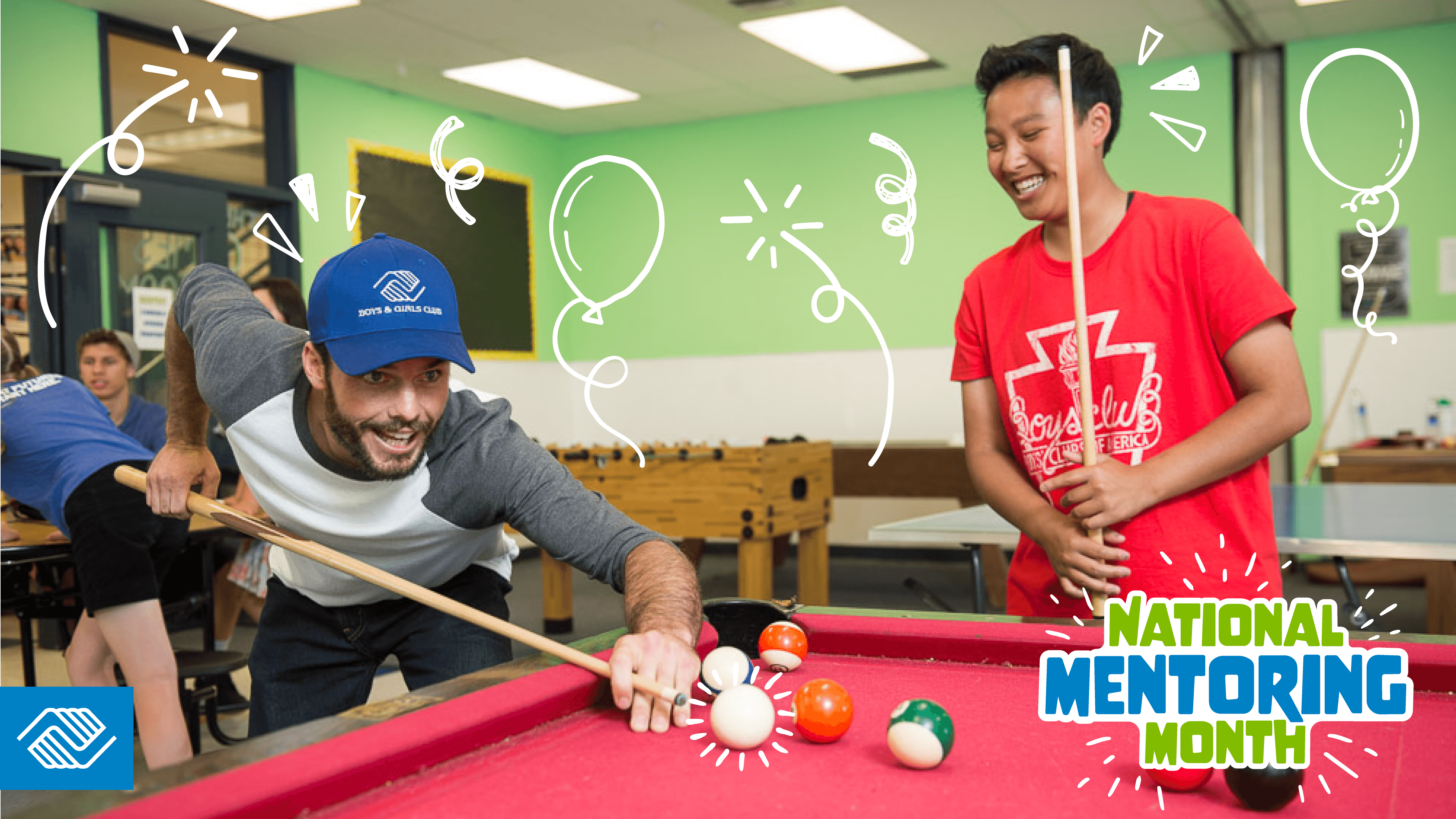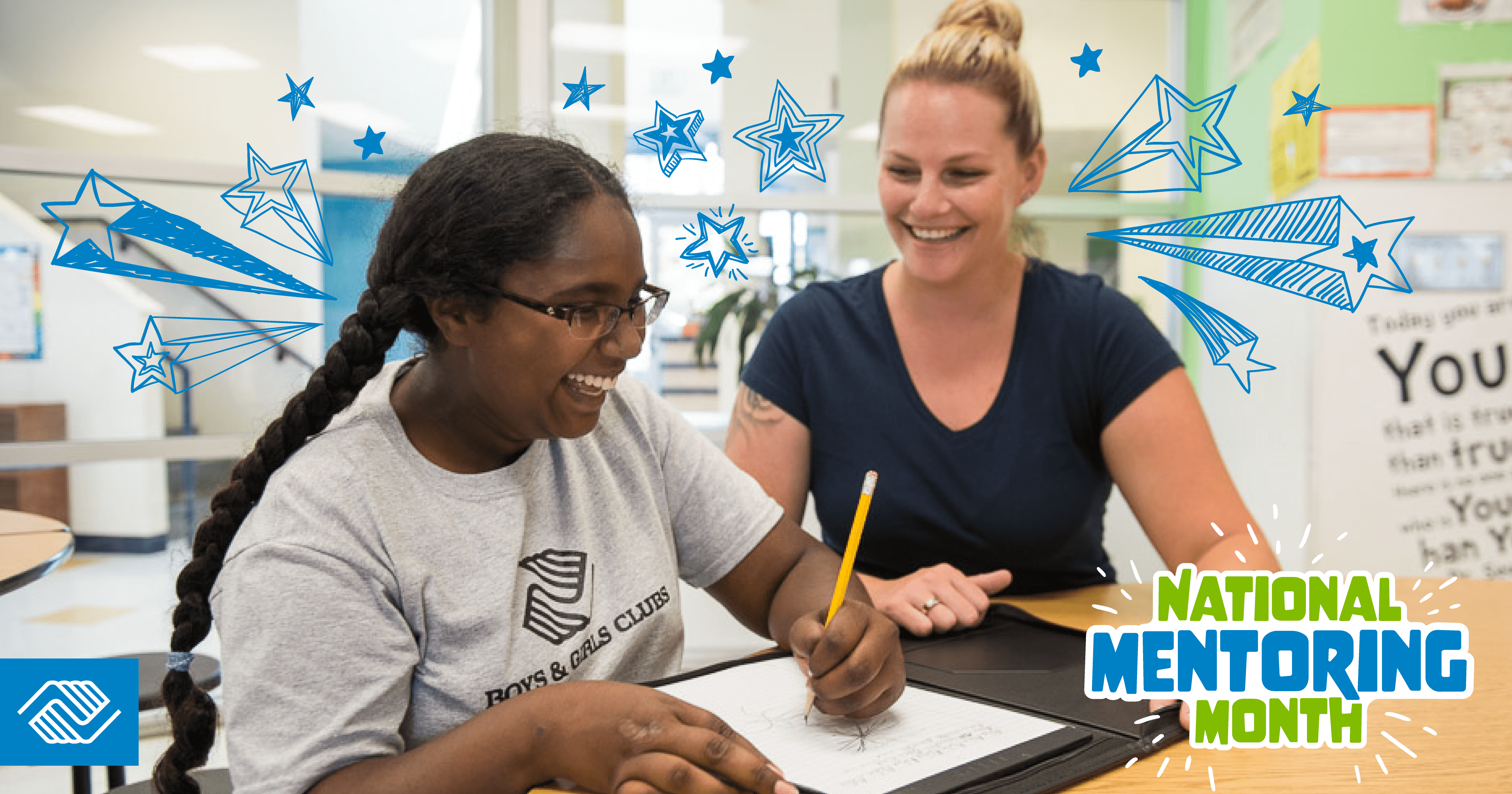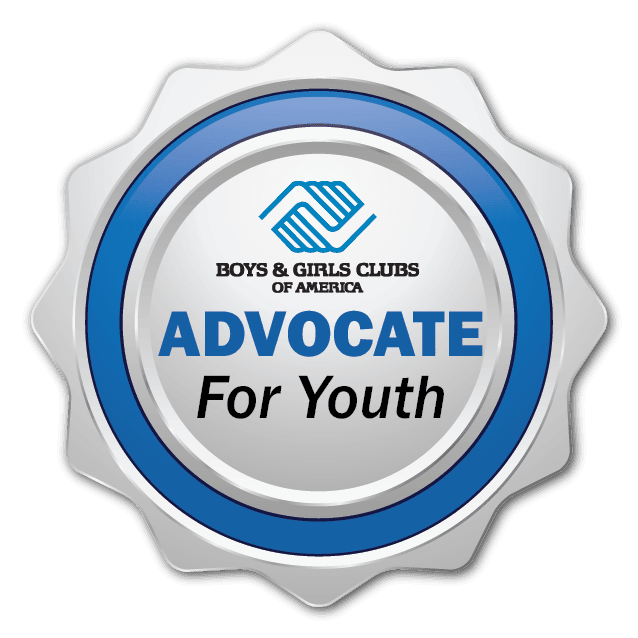At the Boys & Girls Clubs of the Pee Dee Area, young people find positive adult mentors in staff and volunteers who notice their strengths, listen to their concerns and open up doors of possibility. From connecting youth to a program that deepens their interests to sparking their curiosity in a future career field, inspiring mentors help kids and teens explore their full potential.
Someone Who Cares – that’s what our kids need and what we provide.
Someone to look up to. Someone to talk to about dreams and fears. Someone to celebrate victories big and small. A good mentor is there to listen, to support, to care. That guidance and support helps them grow into confident, capable adults.
There are also plentiful benefits of mentors — including helping prevent early drug use, encouraging teens to be college- and career-ready, and promoting positive mental health outcomes. Kids in youth mentoring programs are also more than 50% less likely to skip school.

5 Ways to be an Effective Mentor
Effective mentors help kids exceed beyond the circumstances that surround them, preventing early drug use, encouraging teens to pursue higher education and promoting positive mental health outcomes. But today, 1 in 3 children lack a mentor to help guide them.
LINK TO PHOTO GALLERY OF THOSE 5 WAYS.
- LISTEN. Encourage discussion where kids can express their opinions, thoughts, and solutions without fear of being judged.
- LEAD WITH HOPE & OPTIMISIM. Helping kids build confidence and pursue creativity starts by respecting their ideas or thoughts and greeting them with optimism.
- THINK WITH NOT FOR. Walk alongside youth to guide them and help them when they fall down rather than walking in front of them to clear the path ahead.
- CREATE SAFE, JUDGEMENT-FREE SPACES. Showing kids that they can be their true selves is critical for helping them grow from who they are into who they’re meant to be.
- BE A STUDENT TOO. Being a good mentor means knowing you’re never too old to learn, and you’re never too young to teach.

Why Is Mentoring Important for Youth?
by Suriya Khong, Boys & Girls Clubs of Sarasota and DeSoto Counties in Parent Resources
No matter their background, every kid can benefit from having a positive adult mentor in their life:
Mentorship can provide much-needed consistency.
The immediate benefit of a mentor is having a consistent person who always shows up, through victories and struggles alike. When life feels overwhelming, knowing your mentor will always be there (and is choosing to be there) can be the first step in building a trusting relationship.
Young people are empowered to walk their own path – knowing they’ll be accepted no matter what.
At Boys & Girls Clubs, we strive to be a system of support and acceptance while providing our teens with a place they can explore. Where they feel comfortable making a mistake. Where they can come for guidance without judgment. Mentorship is about allowing youth to walk their own path, and providing a support system for their journey.
In a positive mentoring relationship, mentors should share that they are vulnerable, imperfect beings, too.
I’m constantly making mistakes and learning from them. I share that with my mentees, so they know that I, too, am evolving alongside them. I’m older, but I don’t have all the answers and I’m not always right, even if my heart is in the right place. And I’m honest about my imperfections and shortcomings. By being fully human with my teens, they understand that growth is a lifelong journey and that uncertainty and failure are natural parts of success. Honesty encourages openness and allows for meaningful mentorships to develop.
Mentors support and challenge teens while allowing them space to grow on their own term.
A mentor should accept a mentee for exactly who they are, and yet encourage them to seek out experiences and ideas that challenge their understandings of the world and themselves. Encouraging teens to achieve feats (big and small) that seem daunting – to seek answers, problem-solve, and make choices – and providing them with the type of silence that allows them to formulate their own thoughts, creates the space and desire for enthusiastic growth. And when they’re ready to grow, mentors help make connections to empower them to get started.
Mentorship looks different for each teen.
Every young person is a unique being, and youth mentoring programs acknowledge (and celebrate!) these differences. A mentor takes time to know, understand and accept a young person for who they are, what they’re going through, and who they have the potential to be.
A good youth mentor doesn’t assume their own experiences are the ultimate guide for young people.
As a mentor, it can be tempting to give advice like “this is what worked for me,” especially when I see a young person move in a different direction than I might choose. When that happens, I’ll discuss potential consequences of decisions with a mentee, but with the understanding that a young person’s choices are going to be (and should be) different from my own. Mentorship should be guidance, with freedom.
A strong mentee-mentor relationship is built on consistency, communication and – most importantly – trust. When I create an environment for teens to make mistakes, try new things and dream big, they learn that this support system is always here for them.
Our Impact This Year
-
Days Open a Year
252
-
Youth Served
3,000+
-
Club Sites
6
-
Healthy Meals Served
160,500+







